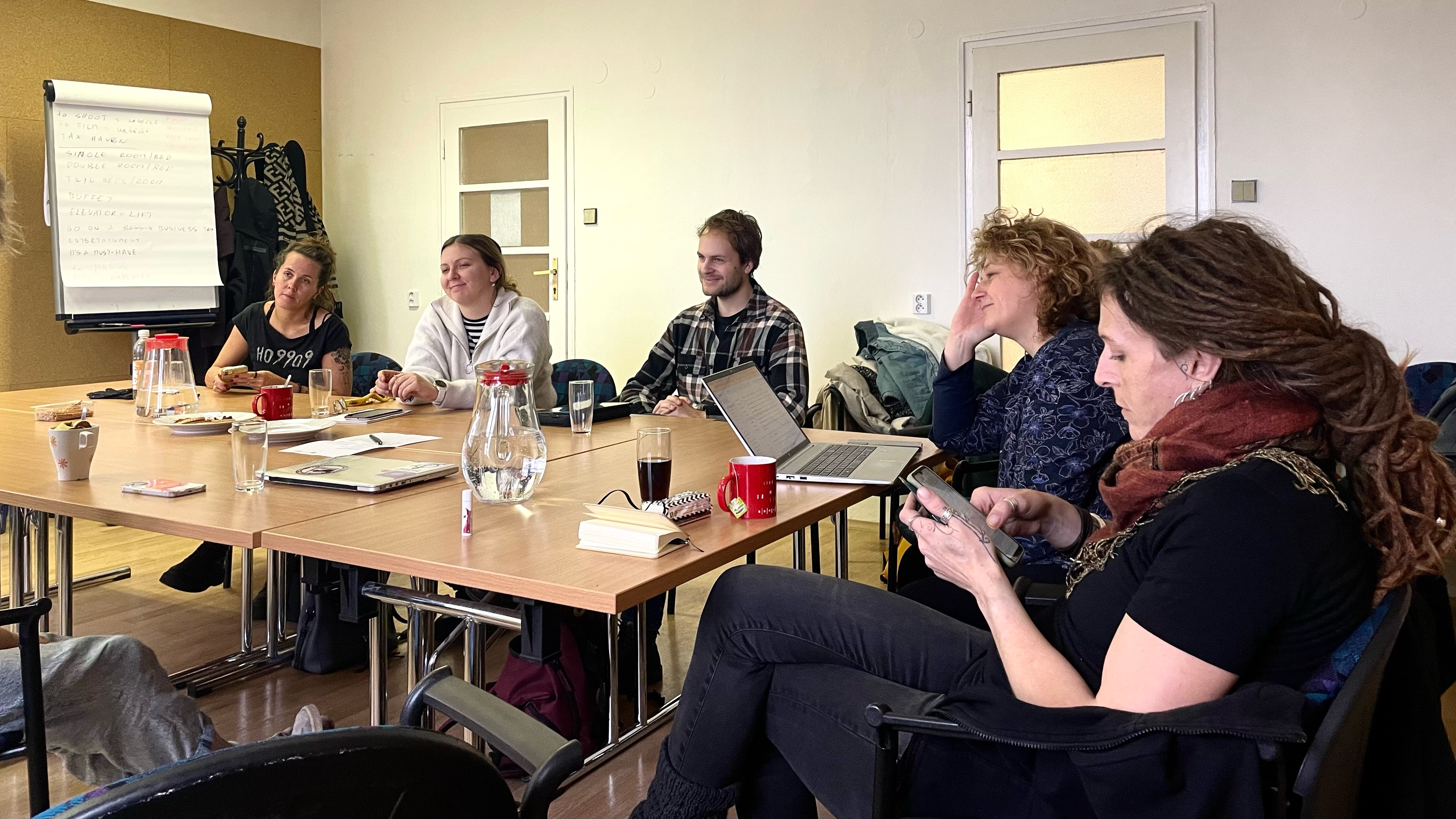
Correlation – European Harm Reduction Network [C-EHRN] and the ENDCR [European Network of Drug Consumption Rooms] organised a drug consumption room (DCR) training in collaboration with the local organisation Podané Ruce, which recently opened a mobile DCR based in Brno (in September 2023). Roberto Perez Gayo, Head of Policy at C-EHRN, and Arianna Rogialli, Project and Policy Support Officer, visited Brno on the 30th of November and 1st of December 2023 to deliver the training program to the local organisation.
The DCR is currently open for injection only and allows for one person at a time (although this could be expanded to 2 or 3 injection spots in the future). DCR staff comprises two social workers. Podané Ruce has also been running an outreach needle distribution program in the same area for several years.
The DCR Trainings are a series of trainings designed and implemented by C-EHRN and the ENDCR which aims to assist organisations that have recently opened or plan to open a DCR. The training provides drug, harm reduction and other social & health-related professionals with resources and guidance for the implementation and operation of the first DCRs in their local context. Brno is the second location where DCR trainings are taking place, the first was Ljubljana in September 2023 [read about the training in Ljubljana here].
The training equipped its participants with tools and insights to contribute to the effective planning, establishment and operation of the mobile DCR in Brno. Building on a needs assessment consultation, the program focused on the topics and areas that are the most relevant to participants. Throughout the training, participants were introduced to different DCR models and approaches, with a focus on mobile DCRs, discussed case studies and best practices, and took part in collaborative exercises aimed at adapting service development to the needs of clients by defining user journey maps, needs and points of contact. Special attention was given to identifying strategies for the DCR to reach the local Roma community successfully. Moreover, the training included sessions aimed at supporting the DCR’s operational logistics, identifying suitable staffing and workforce models and establishing protocols.
The recent DCR training in Brno was a step towards empowering organizations in operating (mobile) DCRs. This initiative is a reflection of C-EHRN and the ENDCR’s ongoing commitment to support the implementation of DCRs, promote harm reduction, and enhance the overall well-being of local communities.
